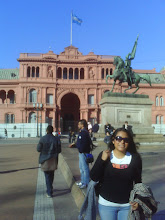In the past, classic approaches to African oral traditions have sought their ground in anonymous social forces, “primitive” mentality, the entextualizing of words, or metaphysical presuppositions.
The ground was an organic conception of literature and a separation of literary criticism from sources, social effects and backgrounds, history of ideas, and politics, for the sake of attention on the object called literary, which was separated from its producer and sociohistorical setting (Leitch 1988:26-35).
This “objectivism,” now generally rejected in African studies, was classically refuted by a zealous, penetrating researcher of Tanzania, T. O. Beidelman: “if folklore has any lasting merit as a field of study by anthropologists, it is in its relation to other spheres of society and social action. Indeed, this too is the relevance of literature”.
Literary critical theories, commentary on African oral traditions always “exhibits a discernible orientation” to artist, audience, or universe (Abrams 1972:4). Performance research in Africa promises to achieve what Derrida claims for deconstruction, “a general displacement of the system” that opposes informants to investigators and text to context.
There are two ways of envisaging decontextualization: either the interviewee has prepared and facilitated decontextualization of his speaking, as the Pathmasters have done, or the interviewee, under the pressure of the moment, has offered fragments of a belief system, a literary discourse, or a style in order to satisfy an interviewer.
Decontextualization is sometimes misunderstood to mean the mere removal of words from a performance setting, as though the words then were nowhere, or in limbo. African societies in the post-colonial era seem constantly to be seeking homeostasis, a temporary balance, which is bound to be upset and will again require rectification.
Poetics and politics reveal another facet of their identity in study of variation in performance of Igbo epic under the impact of what Alan Dundes (1966) calls oral literary criticism.
The three final articles on the oral traditions of African women show three ways in which the arts of the word help to constitute African social life. Here, perhaps, is a ground for the study of African oral traditions. In Africa, perhaps more than any other region, gender speaks loudly as a “persistent and visible cultural resource in folk models of difference” (Mills 1992:2).
The “groupiness” of their traditional performance style contrasts oddly with the increased individual emphasis in the content. Reading their economic situation all too correctly, the women encourage men to achieve material prosperity and benefit their spouses by working in the city. The paradoxical results are twofold: to the extent that men are so persuaded, they will attenuate the marriage relation by living apart from wives and children, and they will enlarge the pool of “paracapitalist labor,” thus throwing into doubt the all-important status of agriculture in Ghana (cf. Spivak 1988). Oral tradition becomes a tool for modernization, though the women are not yet aware how much they are complying with the ideology of the world economic system.
What contribution is the study of African oral traditions making to literary theory? Though critics have long acknowledged the importance of the fundamental folkloric topic of variation in their understanding of Yeats or Henry James, the study of oral tradition, with its local knowledge (Geertz 1983) and its passion for the politically disenfranchised, occupies an oppressed position lower even than feminism.
The great contribution of oral tradition study to criticism is its insistence on the importance of the actual artistic behavior of oppressed peoples.

No hay comentarios:
Publicar un comentario